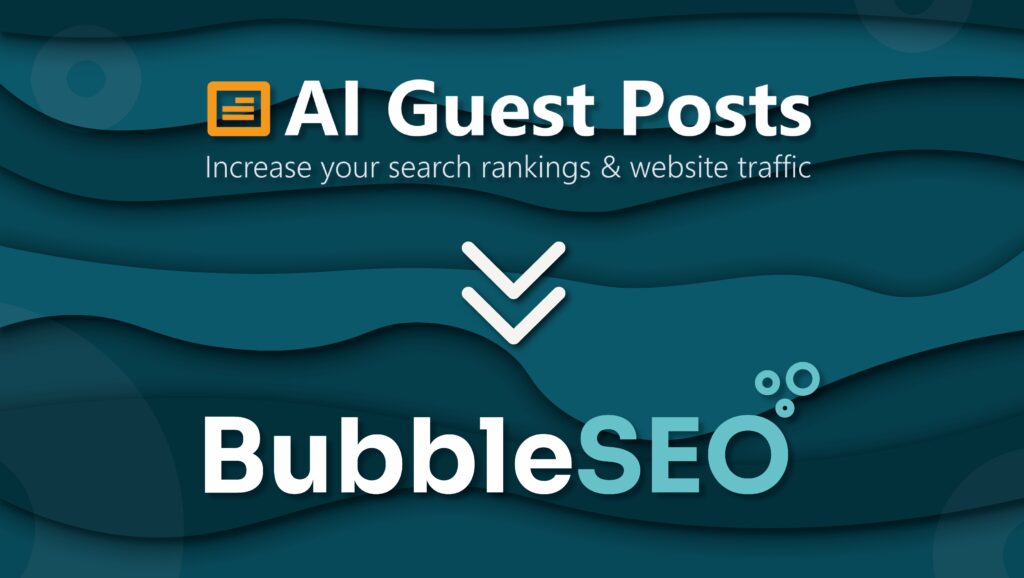
SEO is the process of how your website becomes ranked above others in a search engine. With search engines like Google and Bing having...

Building high-quality backlinks remains one of the most effective ways to improve your website’s search engine rankings and drive organic traffic. But with ever-evolving algorithms, it’s crucial to adopt strategies that are not only effective but also align with Google’s link-building guidelines. This complete guide breaks down proven link-building strategies that can help your business achieve sustainable growth online. Why Is Link Building Important? Links act as "votes of confidence" for your website. Search engines like Google evaluate these links to determine the authority, relevance, and trustworthiness of your content. A well-executed link-building strategy can: Improve SEO rankings: High-quality backlinks signal credibility to search engines. Increase referral traffic: Links on relevant sites can bring in targeted visitors. Enhance brand visibility: Backlinks expose your brand to wider audiences. 1. Create High-Quality Content Exceptional content is the foundation of any successful link-building campaign. Content that provides value—whether it’s in-depth guides, videos, or infographics—naturally attracts links.Consider investing in data-driven studies, industry reports, or step-by-step tutorials that solve your audience's pain points. Actionable Tip: Use tools like Google Trends and Google Keyword Planner to identify trending topics relevant to your niche. 2. Guest Posting Guest posting remains a staple for link building. By contributing articles to reputable websites within your industry, you not only earn backlinks but also establish yourself as a thought leader.At Bubble SEO, we specialize in crafting engaging guest posts that align with the host site’s audience and guidelines. How to Get Started: Research blogs in your niche using platforms like BuzzSumo or Ahrefs Content Explorer. Pitch topics that add value to their readers while subtly promoting your expertise. 3. Broken Link Building This strategy involves finding broken links on other websites and suggesting your content as a replacement. Not only do you help the site owner fix their links, but you also gain a valuable backlink. Steps: Identify broken links using tools like Check My Links or Ahrefs Broken Link Checker. Reach out to the website owner with a polite email, offering your content as an alternative. 4. Leverage Social Media and Influencers Social media platforms and influencer partnerships can amplify your link-building efforts. While links from platforms like Twitter or LinkedIn are usually no-follow, they drive traffic and encourage natural link generation.Collaborating with influencers can also boost your content’s visibility to a wider, engaged audience. Example: Work with influencers to share your high-value resources, increasing the likelihood of backlinks from their followers' websites. 5. Local Citations and Directories For local businesses, getting listed on relevant directories is an easy win. Ensure your business is added to: Google My Business Yell Trustpilot These citations often come with backlinks and improve your local SEO rankings. 6. Competitor Backlink Analysis Understanding where your competitors get their backlinks can uncover new opportunities. Tools like SEMrush and Ahrefs allow you to analyze their backlink profiles and replicate successful strategies. 7. Participate in Community Forums and Q&A Platforms Contributing to platforms like Quora, Reddit, and niche-specific forums can help you gain backlinks. Focus on providing genuine value rather than spamming links. Conclusion Effective link-building requires a combination of creativity, persistence, and strategy. By focusing on quality over quantity and adopting a diverse range of tactics, you can build a robust backlink profile that drives real results. To learn more about professional link-building services or to discuss a bespoke SEO strategy for your business, visit BubbleSEO. Let’s build better links for a brighter online future!

Building high-quality backlinks remains one of the most effective ways to improve your website’s search engine rankings and drive organic traffic. But with ever-evolving algorithms, it’s crucial to adopt strategies that are not only effective but also align with Google’s link-building guidelines. This complete guide breaks down proven link-building strategies that can help your business achieve sustainable growth online.
Links act as “votes of confidence” for your website. Search engines like Google evaluate these links to determine the authority, relevance, and trustworthiness of your content. A well-executed link-building strategy can:
Exceptional content is the foundation of any successful link-building campaign. Content that provides value—whether it’s in-depth guides, videos, or infographics—naturally attracts links.
Consider investing in data-driven studies, industry reports, or step-by-step tutorials that solve your audience’s pain points.
Actionable Tip:
Use tools like Google Trends and Google Keyword Planner to identify trending topics relevant to your niche.
Guest posting remains a staple for link building. By contributing articles to reputable websites within your industry, you not only earn backlinks but also establish yourself as a thought leader.
At Bubble SEO, we specialize in crafting engaging guest posts that align with the host site’s audience and guidelines.
How to Get Started:
This strategy involves finding broken links on other websites and suggesting your content as a replacement. Not only do you help the site owner fix their links, but you also gain a valuable backlink.
Steps:
Social media platforms and influencer partnerships can amplify your link-building efforts. While links from platforms like Twitter or LinkedIn are usually no-follow, they drive traffic and encourage natural link generation.
Collaborating with influencers can also boost your content’s visibility to a wider, engaged audience.
Example:
Work with influencers to share your high-value resources, increasing the likelihood of backlinks from their followers’ websites.
For local businesses, getting listed on relevant directories is an easy win. Ensure your business is added to:
These citations often come with backlinks and improve your local SEO rankings.
Understanding where your competitors get their backlinks can uncover new opportunities. Tools like SEMrush and Ahrefs allow you to analyze their backlink profiles and replicate successful strategies.
Contributing to platforms like Quora, Reddit, and niche-specific forums can help you gain backlinks. Focus on providing genuine value rather than spamming links.
Effective link-building requires a combination of creativity, persistence, and strategy. By focusing on quality over quantity and adopting a diverse range of tactics, you can build a robust backlink profile that drives real results.
To learn more about professional link-building services or to discuss a bespoke SEO strategy for your business, visit BubbleSEO. Let’s build better links for a brighter online future!
Grow your business online with content marketing solutions from Bubble SEO today.
Place An Order
SEO is the process of how your website becomes ranked above others in a search engine. With search engines like Google and Bing having...

We're excited to announce that AI Guest Posts has undergone a transformative rebranding and is now known as Bubble SEO. This strategic move has allowed the business to develop within the digital landscape and highlight our commitment to providing digital marketing solutions tailored to enhance online visibility and engagement for our customers. Bubble SEO remains dedicated to delivering high-quality, targeted content and effective SEO solutions that align with evolving digital marketing trends. Here is a little more information about our brand and its services. Our services: At Bubble SEO, we specialise in three core services, with content writing being a new feature to the website: Guest Posting: Which aims to enhance your online presence with high-quality guest posts on authoritative websites, driving traffic and boosting your SEO rankings. Link Building: Helps build a robust backlink profile with strategic link building services that improve your website's authority and visibility. Content Writing: Provides engaging content for your audience with compelling content tailored to your brand voice and SEO needs. Benefits of Bubble SEO: We have now made changes to the booking process to simplify this, and updated the customer dashboard section in the hope to improve our existing values below: Enhanced Service Quality: With our rebranding comes a renewed focus on delivering top-notch services that exceed your expectations. Improved User Experience: Our new website offers a streamlined interface, making it easier for you to navigate and access our services. Expanded Network: Benefit from our expanded network of partner websites, ensuring broader outreach and better opportunities for your business. Loyalty Rewards: As a token of our appreciation for the continued support of our bookers, we have now introduced loyalty rewards: Exclusive Discounts: Enjoy special discounts as a loyal Bubble SEO customer, with the more points you acquire, the more exciting offers you will unlock. We're thrilled about this new chapter as Bubble SEO and look forward to continuing to be your trusted partner in achieving your digital marketing goals. Stay tuned for more exciting updates and announcements! Discover the new Bubble SEO and elevate your online presence today! Jennifer Hobson – Digital Marketing [email protected] Heather Ryan – Business Development [email protected]

Google is known for its constant algorithm updates, with the goal of improving the quality of search results and enhancing the user experience. In 2024, several significant updates have rolled out, impacting how websites are ranked and how marketers approach their SEO strategies. Below, we explore the key changes and what they mean for businesses and digital marketers. 1. Focus on Helpful Content: The "Helpful Content" Update One of Google's core focuses this year has been on promoting "helpful content". The Helpful Content Update prioritises pages that provide real value to users over those stuffed with keywords or created solely for ranking purposes. Google’s AI now does a better job of determining the true intent behind content, rewarding pages that genuinely address user needs. How to Adapt: Audience-Centric Content: Ensure your content addresses user queries comprehensively and prioritises providing answers or solutions rather than just boosting rankings. Remove Fluff: Thin, repetitive, or overly-optimised content can hurt your rankings. Focus on improving the depth and originality of your articles. User Satisfaction Signals: Pay attention to user engagement metrics, such as time on page and bounce rate, as these can indicate how "helpful" users find your content. 2. Enhanced E-E-A-T: Experience, Expertise, Authoritativeness, and Trustworthiness Google has added an extra "E" to E-A-T, now called "E-E-A-T"—"Experience." This addition means Google now considers whether content creators have first-hand experience on the topics they discuss. This change is particularly impactful in areas like health, finance, and other “Your Money, Your Life” (YMYL) niches. How to Adapt: Author Expertise: Ensure content is created or reviewed by individuals with direct experience or expertise in the field. Author Bios and Credibility: Include detailed author bios, qualifications, and links to credible sources that verify the author's expertise. First-Hand Accounts: Incorporate personal experiences, case studies, and testimonials into your content to demonstrate true experience. 3. Page Experience Update: Mobile-First and Core Web Vitals Google continues to push the importance of user experience with updates to its Page Experience metrics, especially emphasising mobile usability and Core Web Vitals. The Core Web Vitals include metrics such as Largest Contentful Paint (LCP), First Input Delay (FID), and Cumulative Layout Shift (CLS), all of which measure the quality of a user’s interaction with your website. How to Adapt: Speed Optimisation: Optimise your website's loading speed, with particular focus on mobile devices. Stability and Responsiveness: Minimise layout shifts that might frustrate users, and ensure that interactive elements are highly responsive. Mobile-Friendly Design: Test your website across various devices and screen sizes to ensure a seamless mobile experience. 4. AI and Conversational Search: Integration of Generative AI Results Google has rolled out more integrations of generative AI and conversational search features into their search engine results. Google's Search Generative Experience (SGE) aims to provide more interactive, AI-driven results that summarise complex queries in a conversational way. This impacts the traditional search result layout and the visibility of featured snippets. How to Adapt: Structured Data Usage: Ensure your website uses structured data to help Google understand your content better and make it more likely to be included in AI-generated responses. Conversational Content: Incorporate a natural, conversational tone into your content, anticipating longer, more complex queries that users might ask AI. Focus on Rich Answers: Create content that answers questions in a concise, authoritative manner to increase chances of being included in AI summaries or rich answers. 5. Spam and Link Quality Updates Recent updates have also focused on cracking down on spammy practices and low-quality link building. Google's SpamBrain AI is better at detecting manipulative link schemes and penalising websites involved in unnatural link practices. It’s clear that Google’s push for higher quality extends to off-page SEO as well. How to Adapt: High-Quality Backlinks: Focus on acquiring backlinks from reputable, relevant sources rather than quantity. Check out Ahrefs’ Guide to Quality Backlinks for strategies. Disavow Low-Quality Links: Regularly audit your backlink profile and disavow any links from spammy or irrelevant sites using the Google Disavow Tool. Avoid Link Manipulation: Avoid engaging in link exchanges, PBNs, or other tactics that could be flagged as manipulative. Conclusion: Staying Ahead of Google Updates Google’s recent updates underscore its commitment to improving user experience, content quality, and combatting spam. SEO professionals and content creators must adapt by prioritising helpful, experience-driven content, optimising user experience metrics, and focusing on high-quality, ethical link-building practices. Staying informed about these changes and continuously refining your SEO strategy are key to maintaining strong visibility in search results. Remember, Google's updates are ultimately aimed at rewarding websites that provide real value to users—so focus on creating the best possible experience for your audience, and you'll stay on the right side of these changes.

In the fast-paced world of digital marketing, staying ahead of Google’s algorithm changes is critical for maintaining visibility and driving traffic to your website. With 2025 already promising exciting shifts in search engine optimisation (SEO), marketers and business owners must remain proactive to safeguard their online presence. At Bubble SEO, we specialise in helping businesses navigate these changes with ease, ensuring their strategies remain effective and future-proof. Here are some practical steps to keep ahead of Google algorithm changes in 2025. 1. Prioritise High-Quality Content Content remains king in 2025, but Google’s algorithms are becoming increasingly adept at distinguishing truly valuable content from low-effort attempts to game the system. To stay ahead: Write for your audience first and foremost, ensuring your content provides real value. Incorporate structured data like FAQs or how-to guides to enhance visibility in search results. Use tools like Google Trends to identify trending topics and tailor your content accordingly. 2. Focus on E-E-A-T Google's emphasis on Expertise, Experience, Authoritativeness, and Trustworthiness (E-E-A-T) continues to grow. Here’s how to align with these principles: Showcase your credentials and expertise on your website. Regularly update content to reflect the latest industry developments. Earn backlinks from reputable sites to bolster your domain authority. If you need help with building high-quality backlinks, check out Bubble SEO’s services for tailored link-building strategies. 3. Embrace AI and Machine Learning AI is playing a major role in shaping Google’s algorithms. Leverage AI tools to: Optimise your content for user intent. Generate predictive keyword insights. Automate repetitive tasks like on-page SEO audits. Stay informed about the latest AI developments with Google’s AI blog, which offers updates and insights. 4. Optimise for Mobile and Core Web Vitals Mobile-first indexing is now the norm, so your website must be fully optimised for mobile users. Additionally, Google continues to prioritise Core Web Vitals, which measure: Page load speed. Interactivity. Visual stability. Use Google’s PageSpeed Insights to identify areas for improvement and enhance your website’s performance. 5. Harness the Power of Local SEO For businesses targeting specific geographic regions, local SEO is indispensable. To stay ahead: Keep your Google Business Profile updated with accurate information. Encourage customer reviews to build trust and authority. Use geo-targeted keywords to capture local search traffic. 6. Monitor Algorithm Updates Closely Being aware of upcoming changes allows you to adapt swiftly. Regularly check for updates on platforms like: Google Search Central Search Engine Journal By staying informed, you can fine-tune your strategy before your rankings are impacted. Conclusion Navigating Google algorithm changes in 2025 doesn’t have to be daunting. By prioritising quality content, staying informed about updates, and leveraging expert guidance, you can ensure your SEO strategy remains effective. Whether you’re looking for help with link-building, content creation, or an overall strategy refresh, Bubble SEO is here to help. Start 2025 strong by optimising your website today—because staying ahead of the competition begins with staying ahead of Google!

I’m sure you will have heard many a time that ‘content in king’! It really is when it comes to attracting visitors to your website. If your site does not contain a blog consider adding this in, the more content your site has the more content available for Google (and other search engines) to index. Your written content should be relevant to your target audience, factual and interesting and ideally articles should be 500 words minimum (for Google indexing purposes). Ensure you are consistent and realistic with the number of pieces you can add to your blog, if one-piece a week is manageable be consistent, post every week.

Link building is one of the most effective ways to enhance your website’s authority and improve your search engine rankings on Google. It refers to the process of acquiring hyperlinks from other websites to your own. These links act as endorsements, signalling to Google that your site is a trusted and valuable resource. The key is quality over quantity. Links from websites with high domain authority and page authority carry far more weight. They can significantly strengthen your SEO strategy and improve your organic visibility. Today, high-quality backlinks are a core ranking factor in Google’s algorithm—making them crucial to any digital marketing strategy. The SEO Benefits of High-Quality Backlinks There are numerous advantages to building high-quality backlinks: Referral traffic from authoritative sites Improved domain authority and site trustworthiness Faster indexing by search engines like Google Search engines view backlinks as signals of trust and relevance. According to Backlinko, pages with more backlinks tend to rank higher than those without. However, link building must be done strategically. Poor practices can damage your site’s credibility and search performance—something we’ll cover shortly. How Link Building Boosts Brand Authority & Trust Beyond SEO metrics, link building also contributes to brand visibility and credibility. Gaining placements on respected platforms and publications increases your brand’s exposure to new audiences. When potential customers see your brand associated with reputable websites, it strengthens their perception of your legitimacy and authority. In essence, every high-quality backlink reinforces your positioning as a trusted voice within your industry, building long-term trust with both search engines and users alike. Common Link Building Mistakes to Avoid Just as with other aspects of SEO, link building done poorly can have serious consequences. Here are common pitfalls to avoid: Keyword-stuffing anchor text: Your anchor text should feel natural and user-friendly—not overly optimised with keywords. Low-quality or irrelevant links: Links from spammy or irrelevant sites can trigger Google penalties and harm your rankings. Lack of industry relevance: If you’re a marketing agency, ensure your backlinks come from sources within the marketing or business space. Google prioritises topical relevance when assessing link value. For more on ethical link building practices, explore Google’s official link scheme guidelines. Long-Term Gains: Why Consistent Link Building Pays Off Like most elements of SEO, link building is a long-term game. One high-quality link won’t skyrocket your rankings overnight—it requires consistency and strategic execution. In fact, Vazoola reports that over 50% of SEO professionals see measurable results from link building within 3 to 12 months. Consistent link acquisition helps you: Outrank competitors Build sustainable traffic Establish your site as a go-to resource While some businesses may not have the bandwidth to maintain a consistent strategy, those who invest in link building reap clear and lasting benefits. Partnering with Experts: How BubbleSEO Can Help At BubbleSEO, we specialise in link insertion services designed to support your SEO and digital marketing goals. We collaborate with 12 trusted in-house publishing brands across a diverse range of industries—from construction and beauty to finance—ensuring you get backlinks from the most relevant and authoritative sources. We don’t just stop at link building. Our services also include guest posting and content writing, giving your business a well-rounded SEO strategy tailored to your audience. Whether you're new to SEO or looking to scale up your efforts, our expert team is here to support you every step of the way. Final Thoughts: Is Link Building Worth the Investment? In short—absolutely. Link building is one of the most valuable investments you can make for your website’s long-term success. A consistent, strategic approach will strengthen your online visibility, boost brand trust, and drive targeted traffic. While it’s possible to manage link building internally, partnering with experienced SEO professionals like BubbleSEO can help you save time and maximise results. If you're ready to elevate your SEO strategy, get in touch with us today to learn how we can support your growth.

If you have ever invested in link insertions, you have probably had the same thought as almost every other client: “We have paid for these links... so when do we actually see something happen?” It is a fair question. Link insertions are not cheap, and SEO in general can feel a bit murky if you are not living in it every day. The tricky part is that backlinks are not a light switch. You do not add one link on Monday and wake up on Tuesday in position one for your dream keyword. In this post, we will walk through what happens after a link insertion is placed, what Google is doing behind the scenes, and the sort of timelines you can realistically expect. Step One: Google Needs to Revisit the Page When we add a link into an existing article on another website, the very first thing that needs to happen is simple: Google must crawl that page again. How quickly that happens depends completely on the site you are placed on. Big, authoritative sites are crawled all the time. Some are visited several times a day. Smaller blogs, niche sites or sites that are rarely updated might be crawled every few days, weeks or in some cases even longer. Google talks about how it discovers and crawls content in its own Search documentation, and you will see a common theme: there is no fixed schedule for every site. It is all about how important and how active Google thinks that site is. Until Google re-crawls the page, that lovely new link you have just gained is effectively invisible. Step Two: The New Link Is Detected and Assessed When Google does come back to that page, it does more than simply note, “There is a link here now”. It looks at things like: The anchor text you are using The surrounding paragraph and topic Whether the link looks like a natural part of the article or something awkwardly jammed in The page itself and where it sits in the wider site That context matters a lot. As publications like Search Engine Journal have repeatedly pointed out, contextual links inside relevant content tend to carry more weight than random links in a footer or slapped onto a list of “partners”. If the insertion is done well, it should read as if it was always meant to be there. Step Three: The Site and Page Are Weighed Up Once Google sees the link, it still has a question to answer. “How much should I trust this page, and how much value should I pass through this link?” That is where the quality of the referring site really comes in. Google is effectively looking at: Is this site generally about the same topic area? Does it look like a real website with real users, or something built for links? Do people engage with the content? Is the page itself decent quality, or is it thin and outdated? Tools such as Moz’s Link Explorer or Ahrefs’ Site Explorer try to model this with their own metrics, but Google has far more data than we do. The higher the perceived quality and relevance, the stronger the potential boost from that link. So, When Do Rankings Start to Move? This is the bit everyone wants to skip to. Unfortunately, there is no single answer, but we can at least talk in realistic ranges. Based on what is commonly seen across the industry and what we see in campaigns day to day, the pattern is often something like this. Weeks 1 to 4: Quiet groundwork In the first few weeks after a link insertion, a lot is happening behind the scenes: The page is crawled The link is discovered Signals are being recalculated From your side, it can feel like nothing is happening. You might see a few small ranking wobbles here and there, but nothing you would confidently point to as “the link working”. Months 1 to 3: First noticeable movement Between one and three months is when many websites start to notice more meaningful changes, especially if you have: Several links pointing to the same page or topic area Decent on-page optimisation already in place A site that is being crawled regularly Positions might creep up a few places, certain pages will stabilise higher than they were before, and impressions in Google Search Console often start to trend upwards. Months 3 to 6: The compounding effect If you keep consistent with link building, months three to six are where things can get exciting. Because you are not just seeing the impact of one link anymore. You are seeing: Multiple links feeding into the same pages and internal links Topical authority building in a cluster of related pages Google gradually trusting your site more in that niche This is often when competitive keywords finally start to make proper progress. Six months and beyond: Long-term payoff Good links continue to add value for as long as: The linking page stays live The site remains trusted The page they are pointing to is still relevant and useful Over the long term, those signals can support new pages you publish, help you rank faster for related topics and keep your brand “in the mix” against competitors. Why Some Sites See Faster Results Than Others Two companies can both buy link insertions and get very different timelines. A few of the big reasons why: 1. Strength and relevance of the linking sites A highly relevant article on a strong domain will usually move the needle faster than a vaguely related article on a random blog, even if the metrics look similar. Links from websites that sit naturally in your niche, write about your topics and attract your audience are very powerful. They are also more sustainable from a “Google guidelines” point of view. 2. Quality of your landing page If the page you are pointing to is thin, out of date or confusing, there is only so much a backlink can do. You will get far more out of a link insertion when the target page: Answers the search intent clearly Loads quickly and works well on mobile Has a logical internal link structure to support it A lot of SEOs, including the team at Ahrefs, talk about how combining good on-page SEO with backlinks produces results much faster than links alone. 3. Competition in your niche If you are targeting a low-competition keyword, one or two strong link insertions can move you quickly. If you are chasing highly competitive phrases against big, well-established brands, you are playing a longer game. You are not just catching up to one site; you are catching up to an entire ecosystem of authority. 4. Consistency of link building Google is much more comfortable with steady, natural growth than sporadic bursts of links. A handful of carefully chosen link insertions each month usually beats a big one-off spike followed by silence. It simply looks more like natural brand growth. How To Help Your Link Insertions Work Faster You cannot control everything, but there are a few practical things you can do to support your new backlinks. Refresh and improve the target pages Before or shortly after links go live, give your target page a bit of love: Update any out-of-date stats or references Tighten headings and subheadings Make sure the main keyword and close variations are handled sensibly Add internal links from related blog posts and service pages Better pages tend to rank faster once authority starts to build. Strengthen your internal linking Think of your new link insertion as a stream of authority arriving on one page. Internal links decide where that stream flows next. Guides like Backlinko’s internal linking resource show just how much difference a good structure makes. Link from that target page to other important content in the same topic area, using clear, helpful anchor text. Keep publishing useful content Sites that publish regularly and genuinely try to help their audience tend to be crawled more often, trusted more easily and rewarded more consistently. Your link insertions will sit on top of that foundation, rather than trying to compensate for a stale or neglected website. Setting Realistic Expectations with Link Insertions At BubbleSEO, we always try to be honest about timelines. If you are starting from scratch in a competitive niche, you are unlikely to see life-changing results in a few weeks, no matter how good the links are. For most businesses: Early signs appear within the first 1 to 3 months Stronger, more reliable gains tend to show between 3 and 6 months The real value builds over the long term, as links, content and technical SEO all work together The key point is this: a link insertion is not a quick fix, but it is one of the most efficient ways to build lasting authority when it is done properly. Quick FAQ: Common Client Questions “Can a single link insertion get me to page one?”It can happen for low competition terms, but most of the time, it is the cumulative impact of several good links and good content that gets you there. “What if my rankings drop before they go up?”Fluctuations are normal. Google constantly tests different pages in the results. Short-term dips do not mean the link is “bad” by default. “Is there such a thing as too many link insertions?”If they are irrelevant, low quality or acquired in a very unnatural pattern, yes. A steady, sensible strategy on relevant sites is much safer and more effective.

Guest posting—also known as guest blogging—is the process of writing an article and having it published on another company’s website. It’s a tried-and-tested method used by marketers and business owners to build backlinks, improve visibility in search engine results, and grow brand credibility. At its best, guest posting offers real value to readers and allows you to position your brand as a trustworthy voice within your industry. But there’s more to it than just writing a blog and getting a link—when done strategically, guest posting can significantly boost your long-term SEO success. Why Guest Posting Still Works Search engines, especially Google, use backlinks as one of their most influential ranking factors. When your website is linked to by other authoritative sites, it sends a strong trust signal that your content is worth recommending. Done properly, guest blogging can: Drive targeted traffic from relevant audiences. Strengthen your domain authority. Increase brand awareness within your sector. Help new customers discover your services. But quality is everything. A random backlink on a low-effort blog won’t get you far. In fact, it could do more harm than good. What matters most is context, credibility, and consistency. The Right Way to Approach Guest Posting To get real results, guest posting should never be treated as a numbers game. Focus instead on thoughtful placements, authentic content, and genuine value. 1. Relevance Above All Your guest posts should always appear on websites that relate to your industry or subject matter. If you’re in digital marketing, for example, aim to post on blogs that cover marketing trends, advertising, or online business—not random lifestyle or travel blogs. Search engines look closely at the context surrounding your link. If it doesn’t match the content of the site, it won’t carry the same weight. Google calls this “topic relevance”, and it’s increasingly important in how your link is valued. 2. Think Quality, Not Just Authority It’s easy to get caught up chasing high Domain Authority (DA), but a more modest DA score on a hyper-relevant site is often more powerful than a link from a huge but unrelated platform. Ideally, go for both—but if you have to choose, always lean into relevance and audience match. 3. Keep It Natural Backlinks should feel like a natural part of the article. Avoid stuffing in keywords or using exact-match phrases repeatedly. Write as you would for any blog reader—clear, conversational, and informative. Your goal is to educate or entertain, not to force a sales message. Over-optimised anchor text can lead to penalties under Google’s Link Spam Update. 4. Make Every Article Unique Avoid reposting the same article on multiple sites. Doing so can lead to duplicate content issues—Google may ignore the links and consolidate ranking signals instead of giving credit to each version. Learn how duplicate content works and how to avoid it in this comprehensive guide by Backlinko. Customising your content for each website—based on their tone, audience, and layout—makes a noticeable difference. It shows respect for the host site and results in better engagement. What to Avoid in Guest Posting Like any marketing tactic, guest posting has its pitfalls. Here are a few common mistakes that can reduce its effectiveness or even get your site penalised: Mass Submissions of Generic Content Sending out the same article to a dozen websites may seem efficient, but it rarely delivers value. It can also damage your credibility if multiple identical versions are live at once—and risks triggering Google’s spam filters. Focusing Only on Domain Metrics A DA of 70 is impressive—but not if the site has nothing to do with your industry. Google wants to see links from relevant sources, not just powerful ones. That’s why context always matters more than metrics alone. Keyword Stuffing Trying too hard to optimise every sentence can backfire. Keep your language clear and natural, and limit yourself to one or two anchor links per post. Keyword stuffing is listed as a black hat SEO tactic and can lead to penalisation. Ignoring Editorial Standards Sites that accept guest contributions often have their own tone, style, and expectations. Ignoring these can lead to rejections—or worse, a published article that feels awkward and out of place. Following editorial guidelines shows professionalism and increases your chances of repeat opportunities. The Long-Term Value of Guest Posting Guest posting isn’t about chasing short-term wins—it’s a long game. It takes time to build up a network of quality backlinks and meaningful content placements, but the impact can be significant. As your site gains more authority, you’ll start to notice: Improved keyword rankings. More organic traffic from Google. Greater visibility across your niche. A stronger reputation as a trusted voice. It’s also worth noting that guest posts can continue to bring in traffic and engagement long after they’re published—especially if they’re well-written, evergreen, and hosted on reputable sites. Final Thoughts: Strategy First, Always The key takeaway? Relevance and authenticity beat volume and vanity metrics every time. At Bubble SEO, we specialise in strategic guest posting that puts your brand in front of the right audience. With access to 11 respected publishing platforms across a variety of sectors, we can help place your content exactly where it needs to be—without cutting corners. If you’re ready to take your content strategy up a notch, get in touch with our team. Let’s build your visibility the smart way.

In the ever-evolving realm of digital marketing, staying ahead requires a keen understanding of how Google updates can influence your SEO strategy. These updates, ranging from algorithm changes to new ranking factors, shape the landscape for businesses aiming to enhance their online visibility. Understanding Google Updates Google updates are pivotal moments that redefine the criteria for search engine rankings. They can favour certain types of content, penalise outdated SEO tactics, or introduce new requirements for website performance and user experience. For instance, recent updates have placed a premium on high-quality content, mobile responsiveness, and site speed. Adaptation and Agility Adapting to these updates demands agility. It's crucial to monitor industry trends and adjust strategies promptly. Content remains king; businesses must consistently produce relevant, engaging content that aligns with user intent and incorporates targeted keywords organically. The Role of Bubble SEO At Bubble SEO, we specialise in navigating these changes. Our approach integrates cutting-edge SEO techniques tailored to meet the demands of every update. Whether it's optimising for voice search or leveraging schema markup, our strategies are designed to keep your business at the forefront of search engine results pages (SERPs). Key Strategies for Success Content Quality: Emphasise informative, well-researched content that addresses user queries. Technical SEO: Ensure your website is technically sound, from mobile-friendliness to secure HTTPS protocols. Keyword Optimisation: Strategically use keywords relevant to your industry and audience. User Experience: Enhance navigation and usability for a seamless visitor experience. Conclusion In conclusion, navigating Google updates requires a proactive approach. By partnering with Bubble SEO and leveraging our expertise, your business can thrive amidst these changes. Stay informed, adapt your strategies, and maintain a competitive edge in the digital marketplace. For more insights into optimising your SEO strategy, visit Bubble SEO and explore our comprehensive services.

When it comes to improving SEO, most businesses focus heavily on publishing fresh content. While that’s certainly important, many overlook a valuable and often quicker win, refreshing existing content. Updating old content can not only save time and effort compared to writing new articles, but it can also give your rankings a significant boost. If your site has been live for a while, chances are you’re already sitting on content that, with a few strategic updates, could deliver excellent SEO results. Let’s explore why updating old content is so effective and how to do it right. Why Content Goes Stale (and Why It Matters) The digital landscape moves fast. In just a few months, trends shift, search intent evolves, and statistics become outdated. What once was a strong-performing page can quietly slip down the rankings if it’s no longer considered relevant or accurate. Worse still, old content may contain broken links or outdated messaging, which can harm both your brand credibility and your SEO performance. When Googlebot crawls your site and detects broken links or stale information, it may lower the trust signals associated with your domain. You canrun regular SEO audits to identify outdated or underperforming pages. Why Google (and Users) Love Updated Content Google wants to show users the most relevant and up-to-date information. This means it naturally favours sites that refresh their content regularly. Even small updates, if meaningful, can trigger Google to re-crawl and re-rank a page. From a user perspective, it also makes sense. You’re more likely to trust content that’s been reviewed recently versus something that hasn’t been touched in years. And it’s not just blog posts. Refreshing product pages, landing pages, and evergreen articles can have a measurable impact on visibility and engagement. What About Evergreen Content? Evergreen content, such as “how-to” guides or foundational industry articles, tends to stay relevant over time. But even these gems can benefit from occasional updates. For example: Are the external links still working? Could you improve the formatting or visuals? Have new services launched that should be linked internally? The goal is to keep the page fresh and useful without completely rewriting it. Your Content Refresh Checklist It doesn’t take a major rewrite to make a difference. Here's what to look for when refreshing older pages: Update outdated stats or facts: Replace old data with the latest figures or research. Optimise for new keywords: Your SEO strategy likely evolves over time, make sure your older content reflects your current keyword goals. Add internal links: Point readers to newly published blogs, services, or relevant pages across your site. Refresh meta titles & descriptions: Make sure they accurately reflect the content and entice clicks from searchers. Fix broken links: Ensure every link works and adds value, this includes both internal and external links. Want to make this even easier? Use tools like Ahrefs Site Audit, Semrush On Page SEO Checker, or Screaming Frog to quickly spot outdated or underperforming content. Which Content Should You Refresh First? If your website has a large archive, it can feel overwhelming deciding where to begin. Here’s where we recommend starting: 1. Pages with Declining Traffic If a blog or service page was once performing well but has seen a dip in traffic, it’s a prime candidate for a refresh. Check Google Analytics or Search Console to identify these pages. 2. Pages Ranking on Page 2 of Google As Semrush reports, less than 1% of searchers ever click on results on the second page. Moving a page from position #12 to #9 can result in a significant visibility boost. 3. Evergreen Content with Old Links or Mentions Even if the core content remains relevant, refresh the links, update any references to time-sensitive material, and ensure the format still aligns with your current brand tone. Final Thoughts: Don’t Just Create, Curate An effective content strategy balances creation with curation. While new content is essential for growth, updating your existing pages can be one of the most cost-effective SEO wins available to you. At Bubble SEO, we support businesses with both content creation and optimisation. If you’d like help writing SEO-friendly content get in touch with our team.